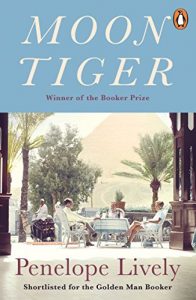
Of course I’ve read Mrs Dalloway, To the Lighthouse and The Waves (although not lately). I had, however never got round to reading Virginia Woolf’s Orlando. Then, last month I was invited to review Sarah Ruhl’s adaptation of it at Jermyn Street Theatre – strong, feisty 4 star theatre, I deemed it. It reminded me that it was high time I read the novel too.
It’s a light hearted work about ambiguous, shifting, sexuality and it therefore as topical now as when it was written nearly a century ago. Styling it a biography – and sending up the genre, with authorial comments, just as her Bloomsbury friend Lytton Strachey did in Eminent Victorians ten years earlier – she presents a protagonist whose existence spans four centuries and who is sometimes a man and sometimes a woman depending on which century we’re in. Whatever Orlando is at any given time the experience of previous stages of his/her life is there to refer to and inform present actions and reactions.
“The change seemed to have been accomplished painlessly and completely in such a way that Orlando herself showed no surprise at it. Many people, taking this into account and holding that such a change of sex is against nature, have always been at pains to prove (1) that Orlando had always been a woman and (2) that Orlando is at this moment a man. Let biologists and psychologists determine. It is enough for us to state the simple fact; Orlando was a man till the age of thirty; when he became a woman and has remained so ever since” (pp 93/4)
We trace Orlando quirkily through late 16th, 17th and 18th centuries when he is male, eventually becoming female in the nineteenth century. He/she encounters lovers of both sexes and those who change, goes on voyages and has adventures both ironically swashbuckling and amatory. Some characters recur down the ages. It’s experimental writing which, like the music of late Schoenberg, still challenges and surprises.
In her preface Woolf acknowledges a whole string of writers, alive and dead, from whom she has drawn inspiration but mentions neither Voltaire nor Lewis Carroll (Charles Dodgson). Yet the sardonic style reminds me a lot of Candide and the surrealism of Alice’s Adventures in Wonderland.
The novel is dedicated to, and was written for, Vita Sackville-West, She and Woolf were both in “open” marriages which allowed them to enjoy extramarital relationships if they wished. The famous, long passionate love affair between these two women is clearly at the heart of Orlando – even to the account of her rejection of a traditional female manner. Years ago I taught with a man who’d been at prep school with one of Sackville-West’s sons so he spent some of his school holidays at Sissinghurst where the family lived. His overriding memory was of her marching about, shouting orders, smoking heavily and swearing.
That pretty much matches Woolf’s description of the 20th century Orlando. For instance Orlando would “change her skirt for a pair of whipcord breeches and leather jacket which she did in less than three minutes …Then she strode into the dining room.” Then “she cut herself a slice of bread and ham, clapped the two together and began to eat, striding up and down the room thus shedding her company habits without thinking, After five or six such turns, she tossed off a glass of red Spanish wine, and, filling another which she carried in her hand, strode through a dozen drawing rooms and so began a perambulation of the house, attended by such elk-hounds and spaniels as chose to follow her.” (pp 223/4)
The house – Orlando’s ancestral pile – is Knole at Sevenoaks where Sackville-West grew up and which Virginia Woolf loved although she’s wittily and relentlessly sardonic about its vast size.It’s odd though. Orlando is pretty explicit about same sex relationships and yet it was published to great acclaim, became a best seller and was soon one of Woolf’s most successful novels. Radclyffe Hall’s The Well of Loneliness deals with similar issues in a rather different way. It was published in the same year – and banned.
PS Once an English teacher … it’s a joy to read something which uses the word sex correctly. “Her sex must be her excuse” and “She had hardly given her sex a thought” and “The curious of her own sex would argue”. Yes, leave that over-used, misused word “gender” in grammar books and discussions where it belongs.
Next week on Susan’s Bookshelves: The Uncommon Reader by Alan Bennett
 An Evening With The Good Enough Mums Club was reviewed at the Pleasance Theatre, London. The show can also be seen at the Mast Mayflower Studios, Southampton on 6 May 2022.
An Evening With The Good Enough Mums Club was reviewed at the Pleasance Theatre, London. The show can also be seen at the Mast Mayflower Studios, Southampton on 6 May 2022.


